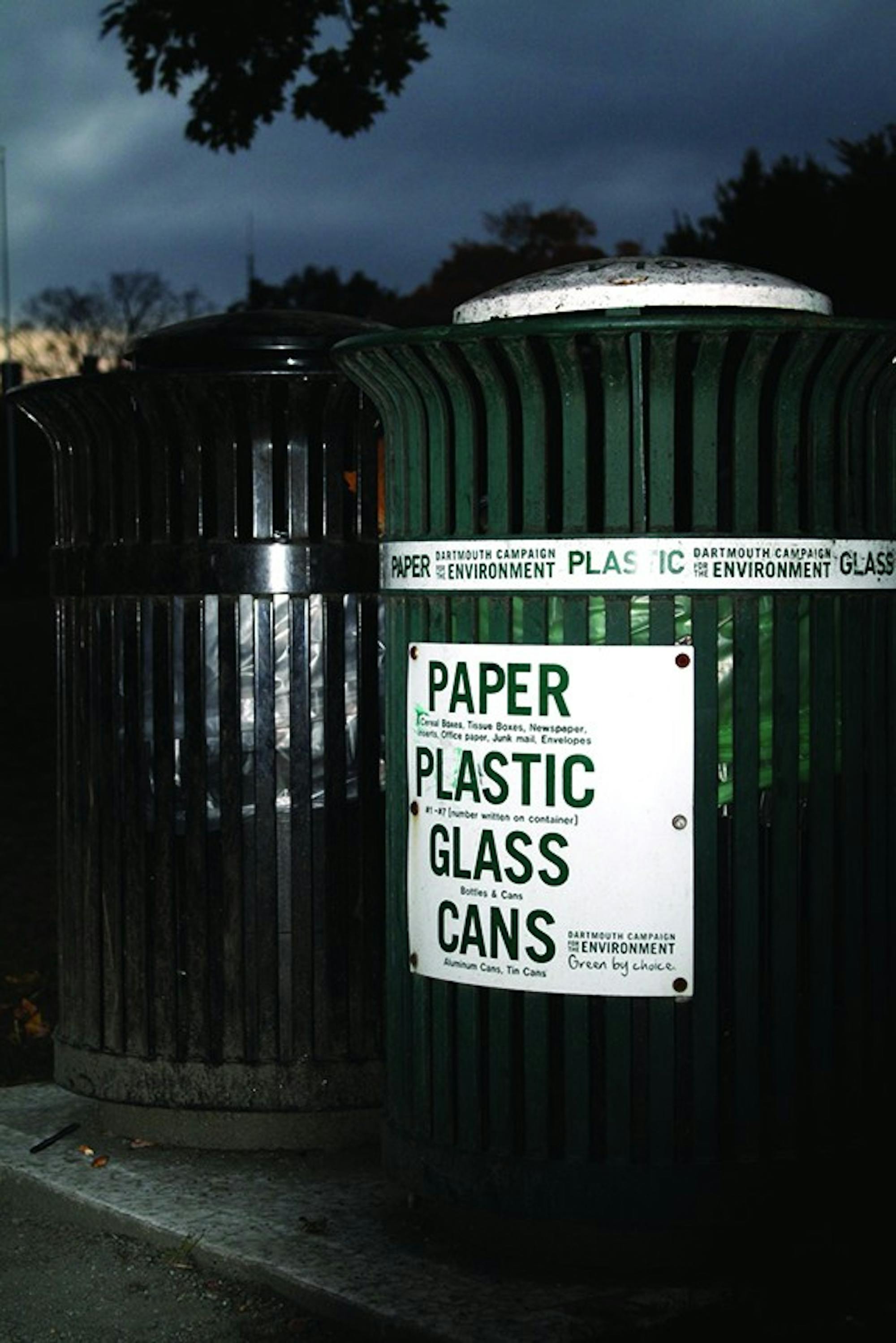On Monday, Collis Café resumed its recycling activities with three new waste-sort sections: landfill, recycling and food compost. In mid-August, the College halted recycling activities in Collis Café, the Courtyard Café in the Hopkins Center, King Arthur Flour in Baker-Berry Library and Novack Café due to high concentrations of waste contamination, Jenna Musco, assistant director of sustainability, said. The remaining locations are scheduled to resume recycling on Oct. 31.
Food products mixed into the recycling rendered most of the College’s waste unrecyclable by Casella, the company Dartmouth has contracted with for zero-waste sorting since 2010. As a result, the College sent even some properly recycled items from the rest of campus — such as in academic buildings and residential halls which have continued regular recycling activities — to landfills. In addition to sending disproportionate amounts of waste to landfills, the College had to pay fines related to resorting and relocating the waste.
Another factor in the recycling decision was the cost of fossil fuels, Musco said. As fossil fuel prices rise, companies are incentivized to carefully sort contaminated waste because recyclables increase in value. As fossil fuel prices have declined in recent years, both the level of contamination that Casella is able to handle and what it considers to be “contamination” have changed. For example, Casella recently removed brown paper napkins and paper towels from its list of recyclable items.
Though some students were disheartened to find that Dartmouth had stopped recycling in areas they have the most contact with, Musco said the decision to halt recycling, which had never been done before, was necessary to understand the College’s recycling problem.
During the pause in recycling activity, Dartmouth Campus Services and the Sustainability Office worked to adjust to Casella’s new requirements by creating new signage and improving collection infrastructure, as well as assessing the contamination across campus. The College continues to face logistical challenges in educating students about sorting waste.
Charlie Levy ’19, a waste intern for the Sustainability Office, suggested that students put their waste in the landfill section if they are unsure rather than risk putting it in the wrong section, which could cause another recycling halt.
“It’s better to have some recycling than none at all,” he said.
Levy and other student volunteers stood in front of the waste receptacles in Collis Café earlier this week, instructing students on the new rules for waste sorting and explaining the new models in the display boxes.
These boxes, as well as informational posters and diagrams, are key to educating students in proper waste sorting, said Rosalie Kerr, director of the Sustainability Office. Campus Services has gone through 10 different iterations of signs within the past 10 years, creating signage based off of research into recycling messaging from private sector organizations, such as Whole Foods, as well as from peer institutions with good recycling practices. In addition to visual messaging, the sustainability team aims to develop a sense of responsibility to recycle in students.
“If you can get enough people caring and enough people making their friends feel guilty about it or enough people making it seem like it’s something hip to do…I think that is where we can get Dartmouth students to start changing,” Levy said.
This incident raised larger questions about the total amount of waste the College produces.
“Dartmouth generates a lot of waste, and we should be reducing that waste first before we’re even worried about recycling it,” Musco said.




